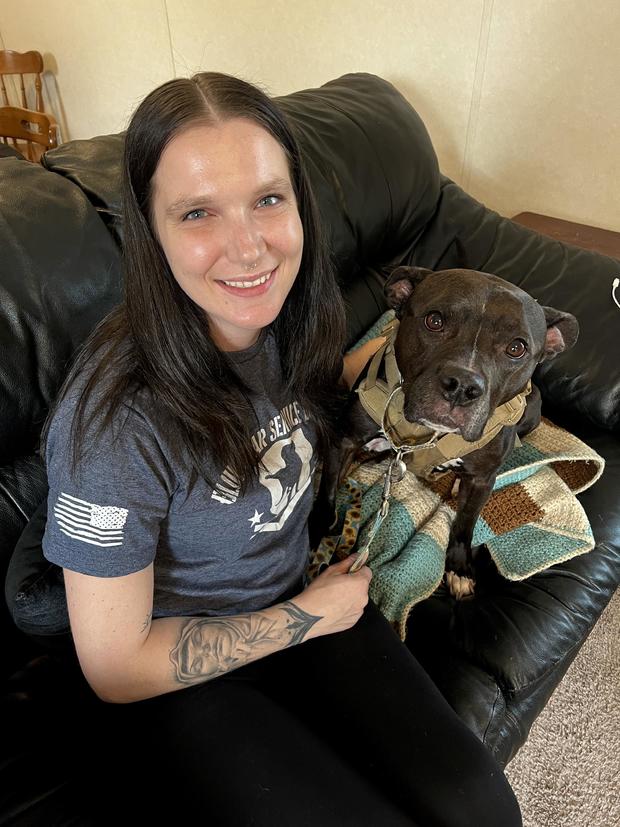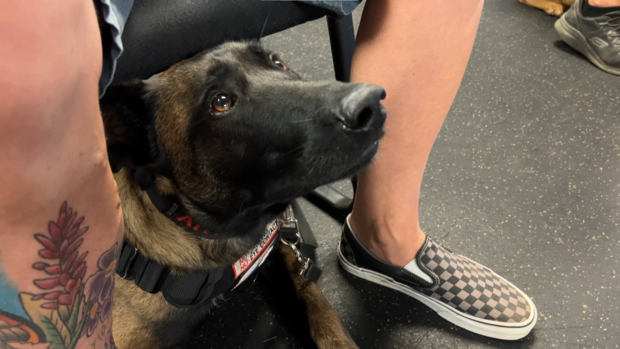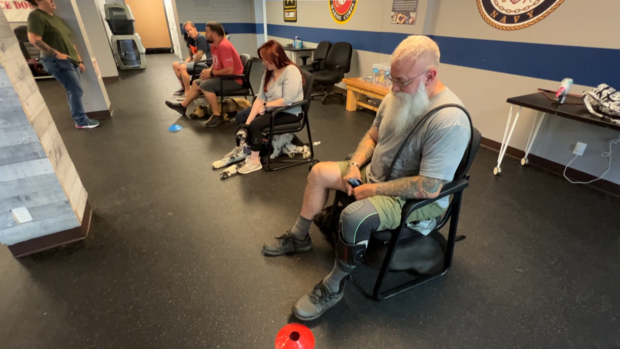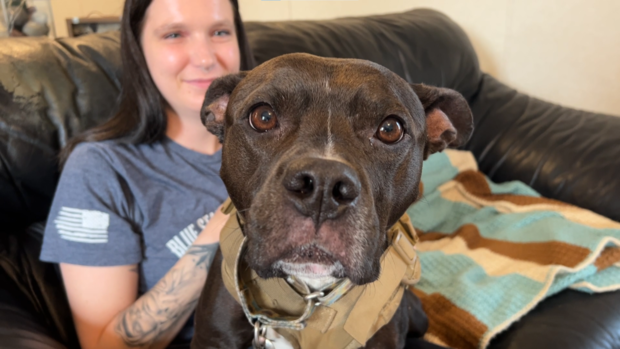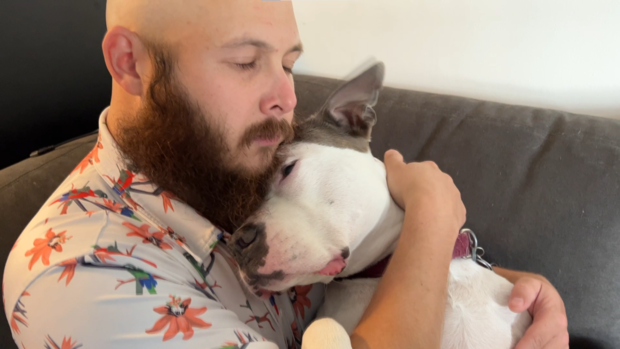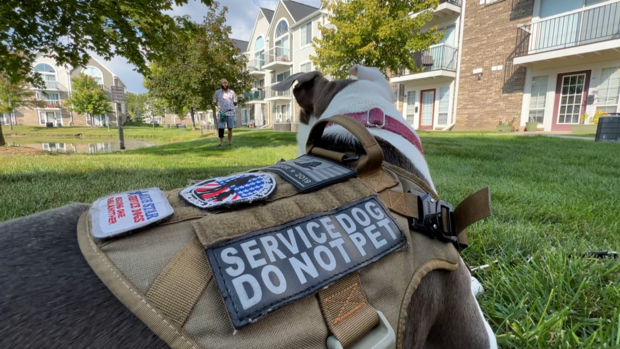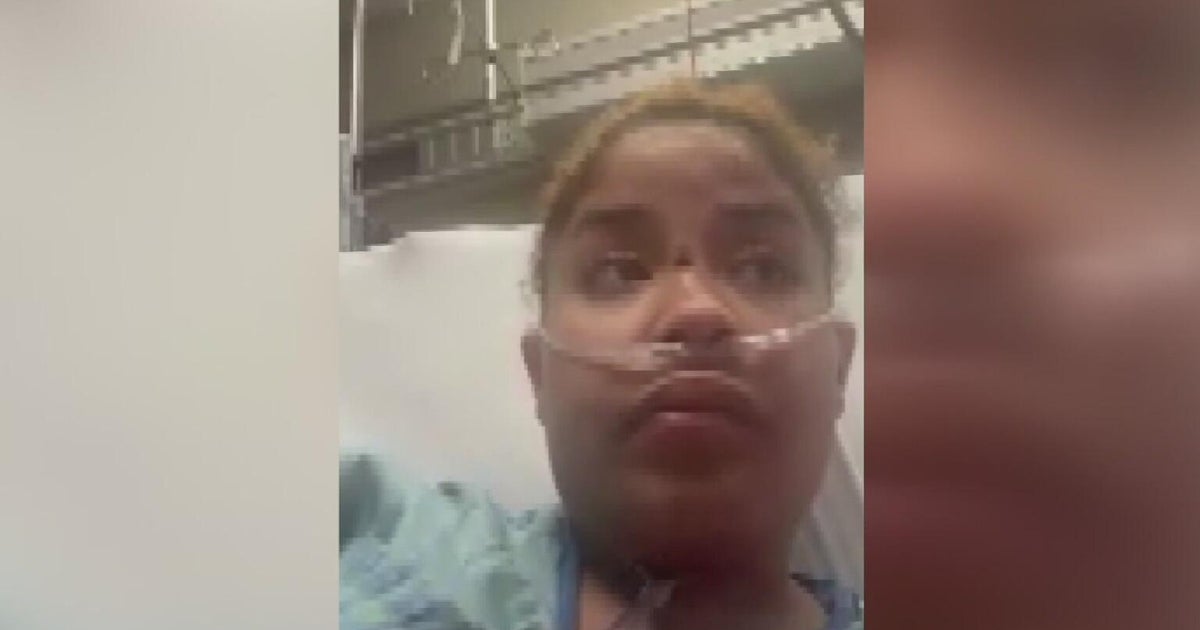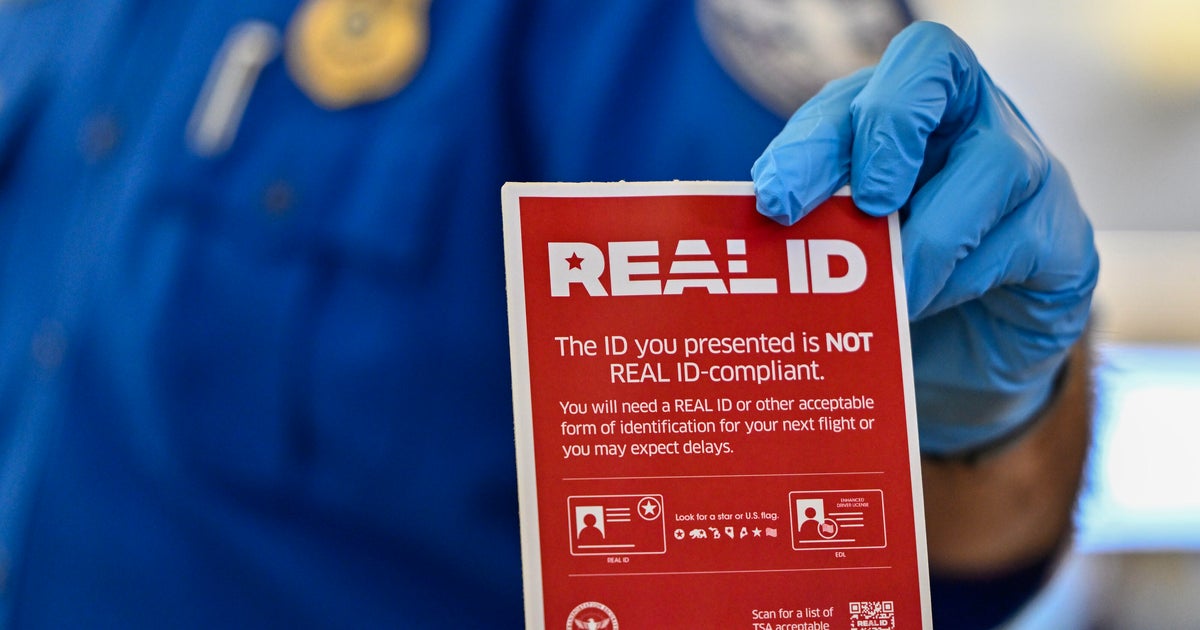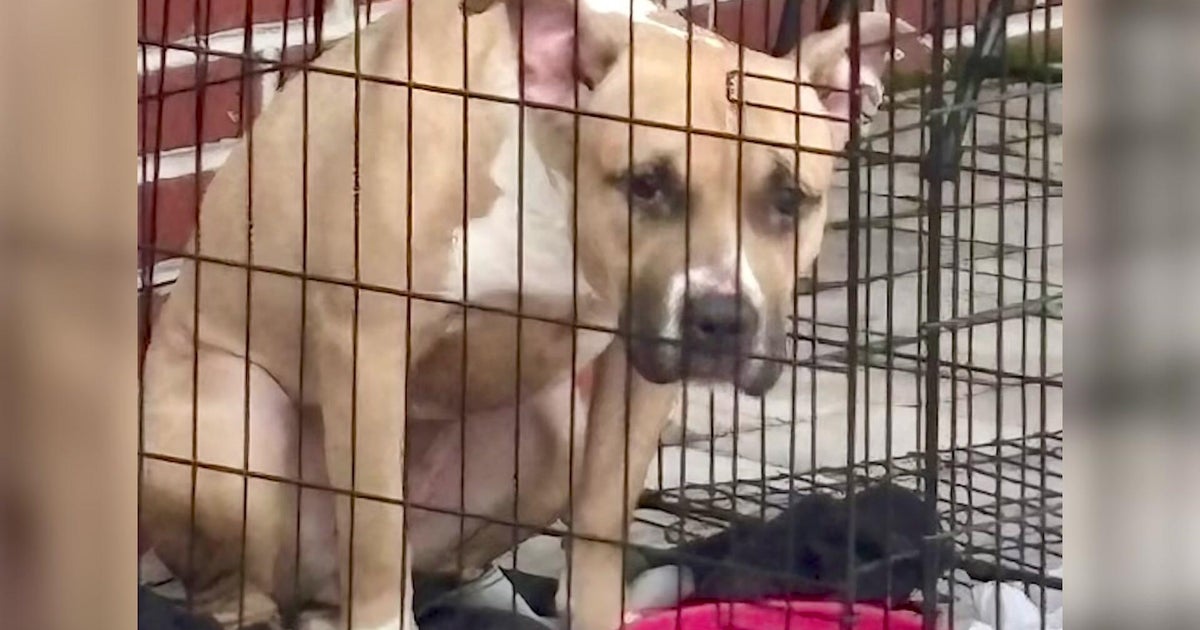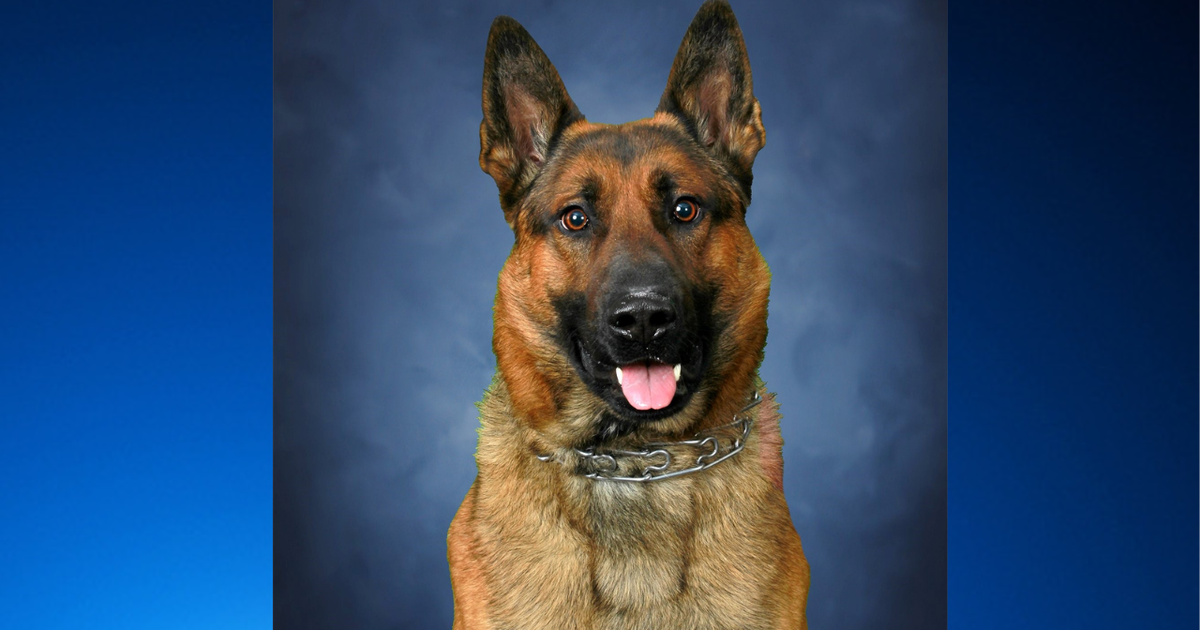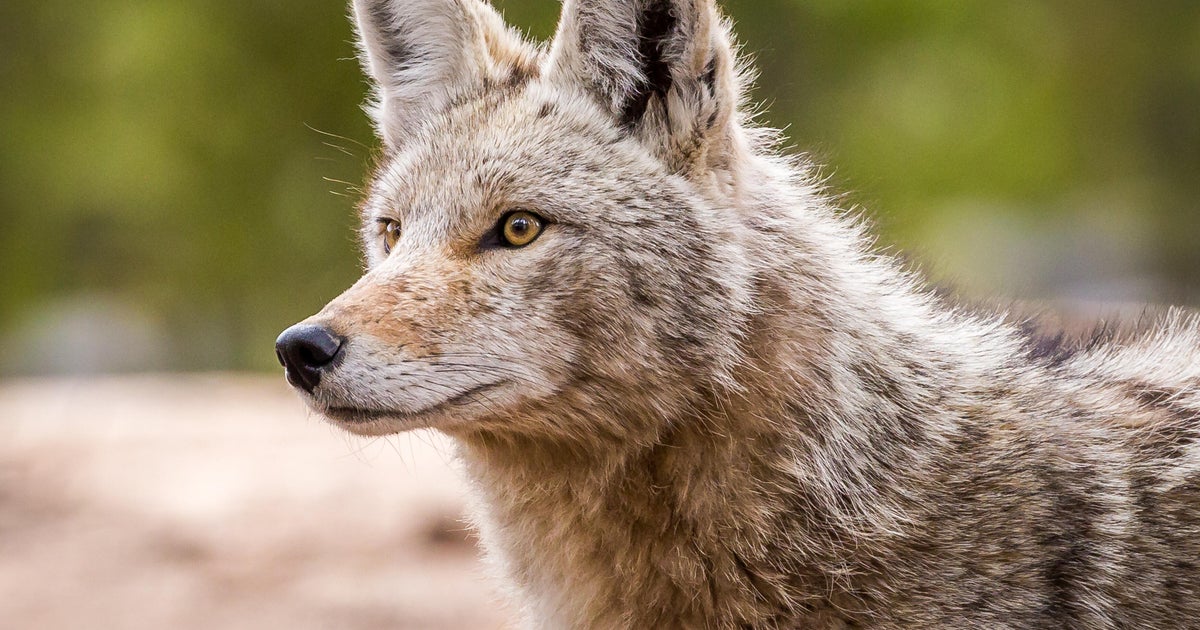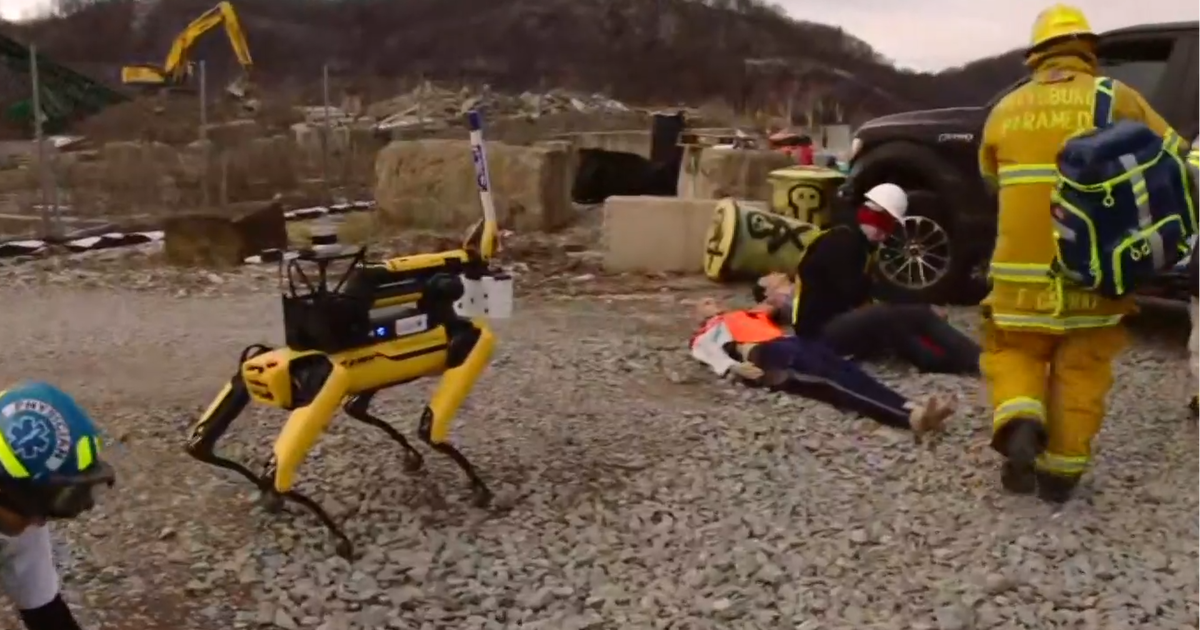Blue Star Service Dogs restoring hope for veterans in Michigan
PINCKNEY, Mich. (CBS DETROIT) - Our veterans risk their lives for our country often experiencing the unimaginable.
When they return home support is crucial. One Metro Detroit nonprofit is committed to making that transition a bit easier by not only offering resources but also service animals.
"On my worst day, I think of her," said Allison Crady.
Crady and her service dog, Ruby, are an unbreakable unit.
"Even on those worst days … because I'm human, I still have them, she's what keeps me here and she's what keeps me grounded," Crady stated.
Ruby is Crady's partner, equal, and four-legged companion.
"There was just something when I put her leash in my hand, I was like you're coming home, you're coming home with me. I just knew," said Crady.
It wasn't simply by chance Ruby and Crady met. The duo was paired through Blue Star Service Dogs, a nonprofit based in Pinckney that provides free service dogs to veterans with Post-Traumatic Stress Disorder.
Reporter: "What does a service dog provide?"
"I guess in one word, independence. But it also provides hope and trust and really a bridge to being able to come back to civilian life and do the things that they want to do regardless of their symptoms from their injuries from combat," said Blue Star Service Dogs Executive Director Christine Myran.
For 13 years, Myran says Blue Star has matched nearly 300 veteran-service dog teams in Michigan and owes its success to the training program they vigorously follow.
"So, we select shelter dogs from around the state of Michigan and we work very closely with county shelters and some rescues. And we take the dogs straight from there and we put them in prison," Myran stated.
Thumb Correctional Facility in Lapeer is one of three prisons in the state where inmates are used to train these dogs.
"The dog will live in the prison with their inmate handlers, and they'll be trained in obedience training and pre-task training. It takes about six months for a dog to go through that training in the prison," said Myran.
For Prison Inmate Jason Treadwell, it's the connection with the canines he trains and the impact these animals have on our veterans that make his time and effort entirely worth it.
"It makes me feel good. Every time that I actually complete the training of a dog and it goes to be a veteran dog, it lets me know that I did something good," said Treadwell.
It's the overwhelming feeling of appreciation that he and other inmates experience on a daily basis that inspires motivation.
It also helps keep you out of trouble because you know that somebody or something else is depending on you," Treadwell said. "Being involved in the program helps you have a feeling that you are still contributing to society even though you're incarcerated."
A program giving dogs a second chance in life, while also rescuing those behind bars.
"It's changed my life. I've been in here since I was 21, so it definitely gave me a big change and motivation and I enjoy training the dogs. I plan on training them when I get out of here. It's what I love doing," said Prison Inmate John Lay.
"These dogs are with us 24/7 and to be able to provide somebody a comfort animal even if they're not a service dog, but something that will give a person reason to continue to move on and move forward, that's the most rewarding thing, so it gives me purpose because I know that I've contributed and done my part," Prison Inmate Ralph Ervin stated.
While these dogs train in prison, Blue Star starts working with veterans to study them.
"How do they walk, how do they talk, what do they need the dog for, are they right-handed or left-handed, do they have other injuries besides their PTSD to make sure that we're looking for a dog that's going to meet the most needs for that individual," said Myran.
From there, the pairing starts. The team takes applicants into prison and connects them with a dog they feel is the best fit.
"Once we pair them, it's not over. We still have them come back here one day a week at the training center. They have to do training every day on their own, but for about a year we will continue to work on them to increase that bond together and learning that task exactly how the veteran needs it," Myran stated.
For Crady, it's as tedious as building the confidence to conquer a crowd.
"When I first started going to Blue Star, I never left my house. I would do all online orders, curbside orders. Thanks to her, I'm able to go out and do things just her and I," Crady stated.
From 2016 to 2021, Crady served in the United States Navy.
"I got off active duty, I just did my one contract and I even remember saying I'll be fine, I wasn't in that long, nothing crazy bad happened to me, I'll be fine. Then I got out, started working my civilian job and everything hit me like a ton of bricks," Crady stated.
The weight of what she saw and heard became almost unbearable.
"I actually ended up inpatient at the VA, started therapy, got linked up with Christine and it was just kind of like a Hail Mary," said Crady.
She met Ruby, a service dog with a tremendous impact.
"Ruby has taught me just genuine connection with people. I was very stone cold, no emotions. Like, I didn't feel anything, and forming that bond with her allowed me to open up that gate to feel other emotions and other things," Crady stated.
It took months of intensive training, but in January of last year, Ruby officially came home.
"It was challenging, it was uncomfortable, but the rewards … it's worth it. It is so worth it. I can't imagine what my life would be like if I didn't power through and trust the process," said Crady.
A rigorous process that Shane Brown says saved his life.
"She's done so much for me, and I want every veteran to know that there are resources out there and you're not alone," Brown stated.
In November of 2019, Brown met Beret.
She's trained to sense anxiety attacks, nightmares and even pick up items off the ground.
"Over the years I've become less and less high-strung, I'm more relaxed.," said Brown.
Reporter: "She gives you purpose."
"Yeah. She gives me a reason to get out of bed," Brown stated.
A former Marine for nine years, a lifetime of traumatic memories. Memories Brown is now able to face because of Blue Star Service Dogs.
"If you want the truth, I probably would have ate a bullet right now. That's the honest truth. A lot of veterans that deployed with the Marines and anyone that's deployed in Afghan or Iraq, a lot of them deal with memories … nightmares," Brown said.
Often invisible injuries this program hopes to help veterans overcome.
"We meet the greatest people that have done so much for us, ya know…and so it's important to give back as much as you can to those veterans that didn't know this was the outcome of serving their country and so it's up to civilians like me to make sure they have the best go at it," said Myran.
A bode to the bond between service dogs and those facing life after service. A nonprofit committed to showing veterans that their lives matter.
If you'd like to get involved with Blue Star Service Dogs, the nonprofit is always looking for volunteers and donations to purchase supplies.
